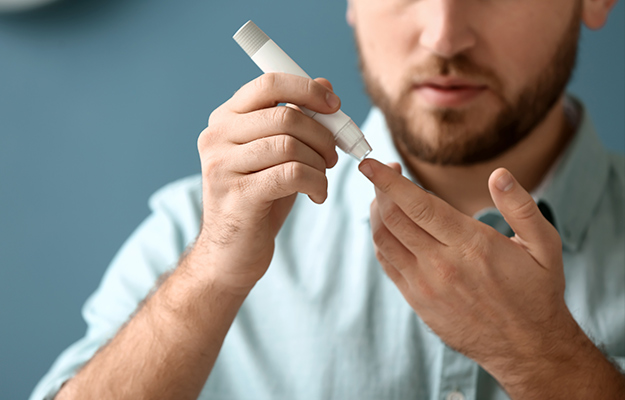Hypogonadism is a condition that affects millions of men worldwide and is often overlooked as a serious health concern.
However, recent studies have revealed a concerning link between hypogonadism and the development of diabetes later in life. Men with hypogonadism have an increased risk of this life-threatening condition; urgent action is necessary to address this issue.
Fortunately, testosterone therapy has emerged as a promising treatment option for both hypogonadism and diabetes.
Men With Hypogonadism May Prevent Diabetes With Testosterone Therapy
Hypogonadism and Prediabetes: Are They Related?

Hypogonadism is a medical condition characterized by low levels of testosterone in men. Testosterone is a hormone that has a crucial role in bodily functions, including regulating body composition, muscle mass, bone density, and insulin sensitivity.
Because insulin sensitivity is vital in controlling blood sugar levels, low testosterone levels in hypogonadism have a link to several health conditions, including prediabetes.
Prediabetes occurs when blood sugar levels are higher than average (100 to 125 mg/dL for prediabetes; 99 mg/dL or lower for normal levels) but not severe enough to be diagnosed as diabetes (126 mg/dL or higher).
Research by the American Diabetes Association has shown that men with hypogonadism are at a higher risk of prediabetes than men with normal testosterone (41.5% compared with 13%). This increased risk is because testosterone plays a significant role in insulin sensitivity and glucose metabolism. Research also shows low testosterone levels are associated with prediabetes regardless of BMI, waist circumference, and age.
Conversely, men with impaired glucose metabolism may also have lower testosterone levels than those with average glucose. Indeed, men with prediabetes are nearly twice as likely to have low total testosterone levels than men with normal blood sugar levels.
Therefore, current evidence and statistics are sufficient to conclude that hypogonadism and prediabetes are interconnected. Those with one condition have an increased risk of having the other, and vice versa. For this reason, screening for both hypogonadism and prediabetes is vital to fully understanding a patient’s condition.
Does Hypogonadism Affect Body Composition?

Unfortunately, yes. Because testosterone plays a crucial role in maintaining muscle mass and distributing body fat, men with low testosterone due to hypogonadism may experience a decrease in muscle mass and an increase in body fat, particularly in the abdominal area.
Testosterone is an anabolic hormone that stimulates protein synthesis in the body – the process of building new proteins from amino acids. This process is essential for the growth and repair of muscles. However, testosterone also inhibits protein catabolism – the process of breaking proteins into amino acids. By inhibiting the breakdown of proteins, testosterone helps preserve muscle mass and prevent muscle wasting.
Testosterone also plays a crucial role in regulating fat distribution. This hormone influences the metabolism of fat cells (adipocytes or lipocytes) and stimulates the breakdown of stored fat. Therefore, low testosterone levels can lead to decreased fat metabolism and increased fat storage, particularly in the abdominal region (around the belly).
Nevertheless, why are fat cells primarily distributed around the belly?
This phenomenon is because the enzyme responsible for converting testosterone to estrogen, called aromatase, is found in high concentrations in abdominal fat tissue. As a result, when testosterone levels are low, more fat is stored in the abdominal area.
Testosterone Therapy for Hypogonadism and Prediabetes
Diabetes Prevention for Hypogonadism
The study by the American Diabetes Association is the first study to show that testosterone therapy can prevent prediabetes in hypogonadal men from developing into diabetes.
The research has found that long-term testosterone therapy for 8 years offers multifaceted benefits for men with hypogonadism and prediabetes. Based on HbA1c values – a test measuring blood sugar in the hemoglobin – the study found that no single man with hypogonadism and prediabetes who received testosterone therapy had diabetes.
Given that there is a 74% lifetime risk of developing diabetes from prediabetes, this finding is noteworthy. In contrast, 40.2% of men with hypogonadism and prediabetes develop diabetes if not treated with testosterone therapy.
The study also emphasizes that, unlike other interventions that only manage diabetes symptoms by maintaining a prediabetes state, in which blood sugar levels do not exceed 125 mg/dL, testosterone therapy can bring back the average blood sugar levels in 90% of the patients and, therefore, resolve both diabetes and prediabetes.
The findings of this study are also consistent with other previous reports of the benefits of testosterone therapy in individuals with hypogonadism and diabetes.
Specifically, previous reports show that long-term testosterone therapy for up to 12 years can improve the symptoms in 12% of diabetes patients.
The full benefits include the following:
- HbA1c: from 8.3% to 5.7% (normal levels are below 5.7%)
- Fasting insulin: from 24.7 to 7.6 μU/mL (normal levels are below 12 µU/mL)
- Fasting glucose: from 7.8 to 5.4 mmol/L (normal levels are below 5.5 mmol/L)
- Body weight: from 107 to 89 kg (17% weight reduction)
- Waist circumference: from 108 to 97 cm
Diabetes Prevention With Improved Body Composition
Interestingly, the weight loss brought on by testosterone therapy progressed and persisted throughout the treatment. This outcome could be a critical factor in preventing the development of diabetes from prediabetes.
According to the American College of Endocrinology, a 10% weight loss is sufficient to effectively avoid future diabetes in any overweight adults with prediabetes by 80%. Given that long-term testosterone therapy for up to 12 years results in 17% weight loss, it is reasonable to believe that the treatment can help manage diabetes.
The steady increase in muscle mass brought on by testosterone therapy is another crucial factor that helps stop the progression of prediabetes into diabetes. In light of this, there is a 23% lower risk of prediabetes for every 10% increase in muscle mass. Conversely, reduced muscle mass is linked to higher sugar and insulin levels.
Studies also found a significant reduction in mortality rates following long-term testosterone therapy in men with hypogonadism and diabetes. More specifically, the untreated group had a mortality rate that was more than twice as high as the testosterone group’s. It also experienced more nonfatal myocardial infarctions.
Nonetheless, an increase in insulin sensitivity is most likely the primary mechanism underlying how testosterone therapy prevents diabetes. Testosterone increases the expression of the insulin receptor, the insulin receptor substrate 1, and the glucose transporter GLUT4, improving the efficiency of insulin-mediated glucose transport.
Bottom Line
Worldwide, 451 million individuals (aged 18 and above) had diabetes in 2017, and the disease was responsible for 5 million fatalities. Also, diabetes-related medical costs worldwide are estimated to be between $850 and $1,300 billion.
The possibility that testosterone therapy might prevent prediabetes from developing into diabetes while being able to maintain normal blood sugar levels in prediabetic patients is a promising finding. The treatment offers an alternative or additional therapeutic option for metabolic disorders, given the frequent co-occurrence of hypogonadism and diabetes.
References
Yassin A Et Al. (2019). Testosterone Therapy in Men With Hypogonadism Prevents Progression From Pre Diabetes to Type 2 Diabetes: Eight-year Data From a Registry Study. American Diabetes Association.
Yunique Medical provides FUNCTIONAL MEDICINE for optimized health and performance. We offer customized, scientifically advanced treatments to create a new state of human thriving. Why be ordinary when you can be optimal?
HUMAN 2.0 begins here!
Contact us to schedule your FREE consultation at one of our three locations in Florida – Ocala, Fruitland Park (The Villages), and Daytona.
UP NEXT:

